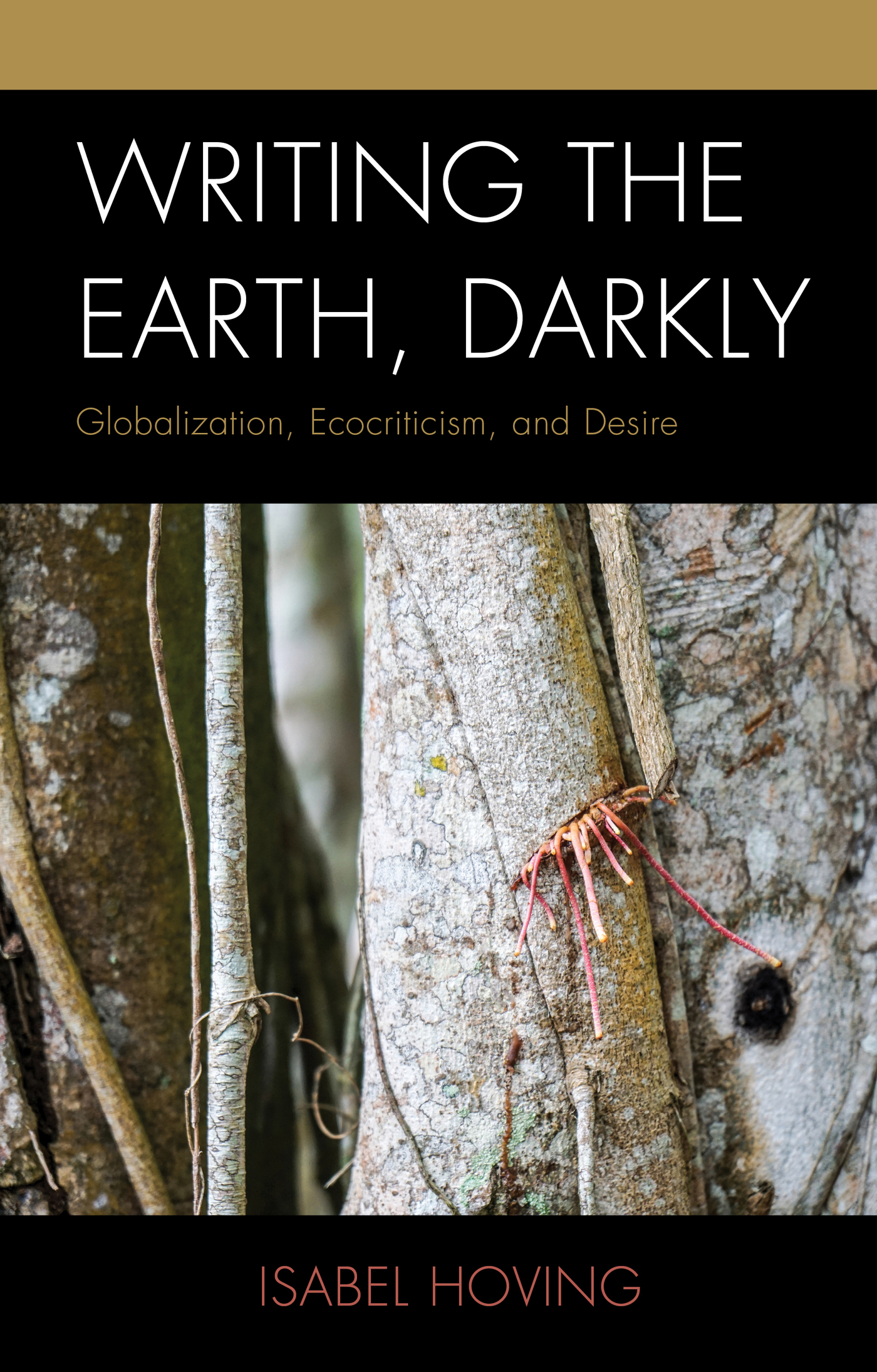Writing the Earth, Darkly
Ecocritical Theory and Practice
Series Editor: Douglas A. Vakoch, METI International, USA
Ecocritical Theory and Practice highlights innovative scholarship at the interface of literary/cultural studies and the environment, seeking to foster an ongoing dialogue between academics and environmental activists.
Advisory Board:
Bruce Allen, Seisen University, Japan; Hannes Bergthaller, National Chung-Hsing University, Taiwan; Zlia Bora, Federal University of Paraba, Brazil; Izabel Brando, Federal University of Alagoas, Brazil; Byron Caminero-Santangelo, University of Kansas, USA; Simo Farias Almeida, Federal University of Roraima, Brazil; George Handley, Brigham Young University, USA; Isabel Hoving, Leiden University, The Netherlands; Idom Thomas Inyabri, University of Calabar, Nigeria; Serenella Iovino, University of Turin, Italy; Daniela Kato, Kyoto Institute of Technology, Japan; Petr Kopeck, University of Ostrava, Czech Republic; Serpil Oppermann, Hacettepe University, Turkey; Christian Schmitt-Kilb, University of Rostock, Germany; Heike Schwarz, University of Augsburg, Germany; Murali Sivaramakrishnan, Pondicherry University, India; Scott Slovic, University of Idaho, USA; J. Etienne Terblanche, North-West University, South Africa; Julia Tofantuk, Tallinn University, Estonia; Cheng Xiangzhan, Shandong University, China; Hubert Zapf, University of Augsburg, Germany
Recent Titles
Writing the Earth, Darkly: Globalization, Ecocriticism, and Desire, by Isabel Hoving
Dark Nature: Anti-Pastoral Essays in American Literature and Culture, edited by Richard J. Schneider
Thinking about Animals in the Age of the Anthropocene, edited by Morten Tnnessen, Kristin Armstrong Oma, and Silver Rattasepp
Romantic Ecocriticism: Origins and Legacies, edited by Dewey W. Hall
Linda Hogan and Contemporary Taiwanese Writers: an Ecocritical Study of Indigeneities and Environment, by Peter I-min Huang
Ecocritical Approaches to Literature in French, edited by Douglas Boudreau and Marnie Sullivan
The Green Thread: Dialogues with the Vegetal World, edited by Patcica Vieira, Monica Gagliano, and John Ryan
Interdisciplinary Essays on Environment and Culture: One Planet, One Humanity, and the Media, edited by Jean-Marie Kauth and Luigi Manca
Romantic Sustainability: Endurance and the Natural World, 17801830, edited by Ben P. Robertson
Ishimure Michikos Writings in Ecocritical Perspective: Between Sea and Sky, edited by Bruce Allen and Yuki Masami
The Ecopolitics of Consumption: The Food Trade, edited by H. Louise Davis, Karyn Pilgrim, and Madhu Sinha
Writing the Earth, Darkly
Globalization, Ecocriticism,
and Desire
Isabel Hoving
LEXINGTON BOOKS
Lanham Boulder New York London
Published by Lexington Books
An imprint of The Rowman & Littlefield Publishing Group, Inc.
4501 Forbes Boulevard, Suite 200, Lanham, Maryland 20706
www.rowman.com
Unit A, Whitacre Mews, 26-34 Stannary Street, London SE11 4AB
Copyright 2017 by Lexington Books
All rights reserved. No part of this book may be reproduced in any form or by any electronic or mechanical means, including information storage and retrieval systems, without written permission from the publisher, except by a reviewer who may quote passages in a review.
British Library Cataloguing in Publication Information Available
Library of Congress Cataloging-in-Publication Data
Includes bibliographical references and index.
ISBN 978-1-4985-2675-3 (cloth : alk. paper)
ISBN 978-1-4985-2676-0 (Electronic)
 TM The paper used in this publication meets the minimum requirements of American National Standard for Information Sciences Permanence of Paper for Printed Library Materials, ANSI/NISO Z39.48-1992.
TM The paper used in this publication meets the minimum requirements of American National Standard for Information Sciences Permanence of Paper for Printed Library Materials, ANSI/NISO Z39.48-1992.
Printed in the United States of America
Acknowledgments
This book has grown slowly, in response to the exhilarating developments in academic fields such as Caribbean studies, postcolonial studies, gender studies, and the environmental humanities, and I am deeply indebted to the many colleagues who guided my explorations in these fields. I would like to thank the Faculty of Humanities at Leiden University that funded a postdoc-project, my always inspiring, supportive colleagues and fellow travelers of the Department of Film and Literary Studies and the Leiden University Centre for the Arts in Society, and my coteacher Rob Zwijnenberg and the students who participated in the adventure of teaching and studying the environmental humanities. I am grateful to the many scholars who commented on earlier versions or presentations of parts of this book, offered me valuable advice, edited parts of the book in various stages, and/or discussed ideas; among them Mieke Bal, Elizabeth DeLoughrey, Maria Cristina Fumagalli and Bndicte Ledent, Catherine Lord, Shani Mootoo, Nanne Timmer, Jonathan Todd, Ginette Verstraete, Gloria Wekker, Janet Wilson, the anonymous readers who commented on this manuscript, and earlier versions of separate chapters, and many others. My understanding of the environmental humanities has greatly benefited from the collaboration with my good friends at EASLCE and Ecozon@, and most recently the Benelux Association for the Study of Literature, Culture and the Environment, BASCE. I thank all those who edited earlier versions of parts of these chapters: Sean de Koekkoek, Jonathan Todd (again), Michael Katzberg, and Jonathan Smit. A big thank you, too, to Lindsey Porambo and Marilyn Ehm, the very patient editorial staff at Lexington Books, and Douglas Vakoch, for his support and encouragement. I owe special thanks to Olive Senior for granting me the permission to quote her wonderful poems. They were originally published by Calabash and Insomniac Press. Earlier versions of several chapters in this book were published elsewhere. A previous, shorter version of chapter 2, Alterity, appeared as Moving the Caribbean Landscape: The New Imagination of the Caribbean Environment in Caribbean Womens Writing, pages 15468 in Caribbean Literature and the Environment: Between Nature and Culture, edited by Elizabeth DeLoughrey et al. (Charlottesville and London: University of Virginia Press, 2005). A much shorter version of chapter 7, Trans, appeared as Broadcasters and Butterflies: Sexual Transgression as Cultural Critique in Dutch Caribbean Writing, pages 477513 in The Cross-Dressed Caribbean: Sexual Politics after Binarism, edited by Roberto Del Valle, Alcala Maria Cristina Fumagalli, and Benedicte Ledent (Charlottesville and London: University of Virginia Press, 2014). Both chapters are reproduced with permission of the University of Virginia Press. Fragments of chapter 4 first appeared in my Remaining Where You Are: Kincaid and Glissant on Space and Knowledge, pages 12540 in Mobilizing Place, Placing Mobility: The Politics of Representation in a Globalized World, edited by Ginette Verstraete and Tim Cresswell (Amsterdam: Rodopi, 2002). Chapter 8 appeared in an earlier, shorter version as On Invasions, Weeds and Wilderness: The Dutch Imagination of Globalisation (Thrice), 15371 in Global Fissures: Postcolonial Futures, Cross/Cultures 85, edited by Clara A.B. Joseph and Janet Wilson (Amsterdam: Rodopi, 2006). Chapter 9 appeared in an earlier, shorter version as Opacity and Openness: Creating New Senses of Dutchness, pages 297312 in

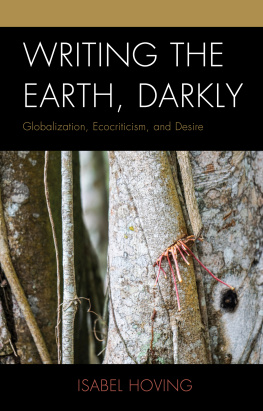

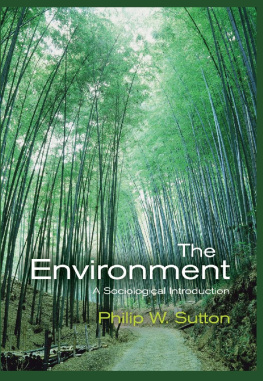
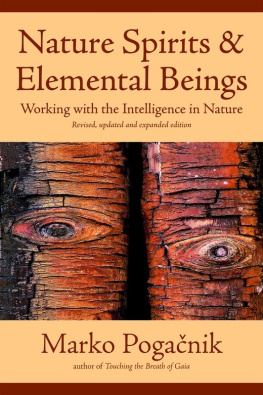
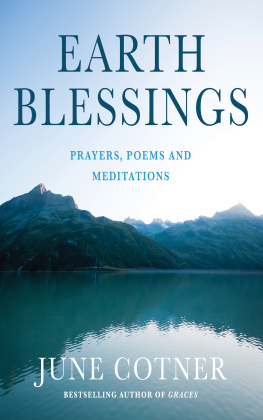
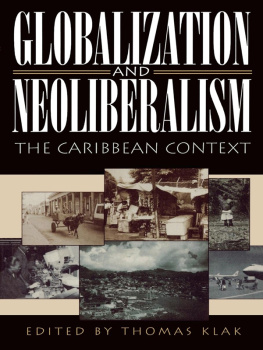
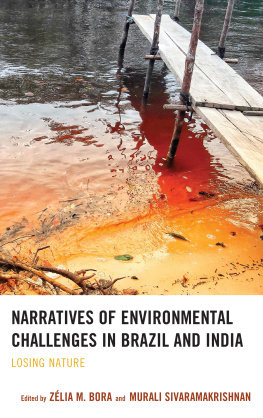
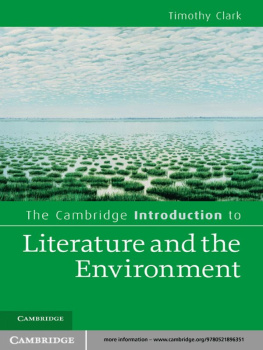

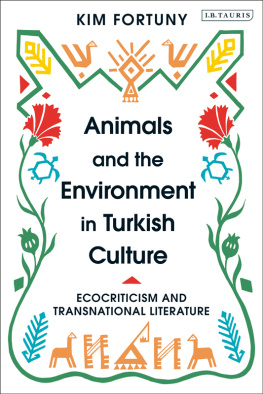

 TM The paper used in this publication meets the minimum requirements of American National Standard for Information Sciences Permanence of Paper for Printed Library Materials, ANSI/NISO Z39.48-1992.
TM The paper used in this publication meets the minimum requirements of American National Standard for Information Sciences Permanence of Paper for Printed Library Materials, ANSI/NISO Z39.48-1992.